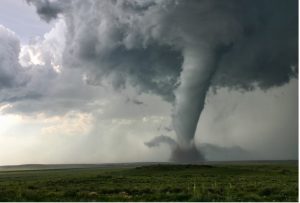Natural disasters like hurricanes, earthquakes, and floods can result in extreme loss, obliterating homes and, tragically, taking lives. In a matter of moments, entire communities can be devastated, leaving individuals without shelter, security, and the familiar support networks they depend on. The emotional aftermath of such loss often overshadows the physical destruction; for many, the grief of losing loved ones is a burden that lingers long after the storm has passed. This combination of sorrow and upheaval presents significant challenges for survivors as they navigate the daunting task of rebuilding their lives amid such change.
Hurricane Milton has struck communities with unparalleled ferocity, displacing thousands and shattering the sense of normalcy for many families. The storm’s powerful winds have left behind collapsed structures and flooded streets, erasing not just homes but also cherished memories and a sense of belonging. As individuals sift through the remnants of their former lives, the weight of starting over can feel overwhelming. Questions of “Where do we go from here?” echo through crowded shelters, where many are uncertain about returning to the places they once called home. Despite these challenges, an inspiring wave of support from neighbours, volunteers, and emergency responders has emerged, with relief organisations working tirelessly to provide essentials and emotional comfort to those affected. Yet, the scale of loss remains staggering, and the road to recovery is likely to be long and arduous.

In addition to the immediate devastation, Hurricane Milton underscores the critical need for proactive disaster preparedness as climate change continues to escalate the frequency and severity of such events. For those who have lost everything, rebuilding extends beyond mere physical structures; it involves restoring lives and reconnecting with communities. The compassion and solidarity of friends, family, and neighbours are vital in fostering hope and resilience during this challenging journey.
The emotional toll following a disaster like this can be particularly challenging, as survivors grapple with a complex mix of feelings, including sorrow, anxiety, and anger. The trauma experienced can lead to lasting mental health challenges, such as post-traumatic stress disorder (PTSD) and depression. As individuals and families strive to reclaim a sense of stability, they may experience feelings of isolation and uncertainty, which can complicate their recovery efforts. It’s crucial for communities to offer compassionate support and resources to help those affected navigate these emotional struggles and embark on their healing journeys.
Ultimately, Hurricane Milton has revealed the extraordinary resilience of the human spirit. Amid the heartache, there are countless stories of neighbors supporting one another and communities coming together, providing glimmers of hope in the darkest of times. While the physical structures may be rebuilt, it is the collective strength and solidarity of the people that will guide them through this difficult period. Our thoughts are firmly with everyone affected by Hurricane Milton, and we extend our deepest wishes for strength, resilience, and comfort as they face the challenges ahead.
If you would like to support the various charitable organizations aiding in the relief efforts, please visit www.directrelief.org Your contributions can make a significant difference in the lives of those affected.

